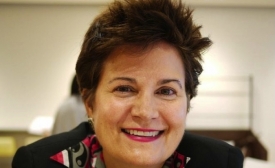japan

A new position at Kyoto University, research on nation branding and propaganda, and an upcoming book on Japan’s struggle to “go global.”
Japan is set to build India's first bullet train, with Tokyo financing the project through an $8 billion loan to New Delhi [...] [The Nikkei said] that the two countries will issue a joint statement about the deal on Saturday during Prime Minister Shinzo Abe's visit to India [...]The report comes after Japan failed to win a high-speed train deal in Indonesia earlier this year, losing out to a Chinese proposal.
Japan International Cooperation Agency (JICA) held the Okinawa International Cooperation and Exchange Festival 2015 at the Okinawa International Center in Maeda, Urasoe. JICA’s interns, learning about technology from all over the world, and about 30 international cooperation and exchange associations in Okinawa ran booths.
The militaries of many nations harness mass media and pop culture for promotional purposes… Japan is no different. But what makes their military unusual is that the image being projected isn’t one of might or machismo but of cuteness…this kawaii (cute) imagery is...a testament to the deep ambivalence the Japanese retain about both the history and the changing role of their armed forces.
Japanese Prime Minister Shinzo Abe on Saturday said that the India-Japan bilateral relationship has the “greatest potential,” a view that was shared by his Indian counterpart Narendra Modi.
The HSD Program is a 10-day diplomatic exchange program that merges American and Japanese cultures. [...] Each American is partnered with a Japanese roommate, in many cases creating a bond that forms new brotherhoods and sisterhoods.
When it comes to public diplomacy, China might be better off loosening up and developing a sense of humor about itself. Gone are the days of Hu Jintao’s “smile diplomacy,” which aimed to convince the world that it had nothing to fear from a rising China.
These heavy hitters all stand to benefit the most from the government's “Cool Japan” initiative, which has less to do with cultural diplomacy than promoting exports of Japanese “contents.” [...] Yasushi Shiina in a Toyo Keizai Online interview. He describes the festival's role as “conveying Japan's appeal internationally through film,” rather than celebrating global cinema.







